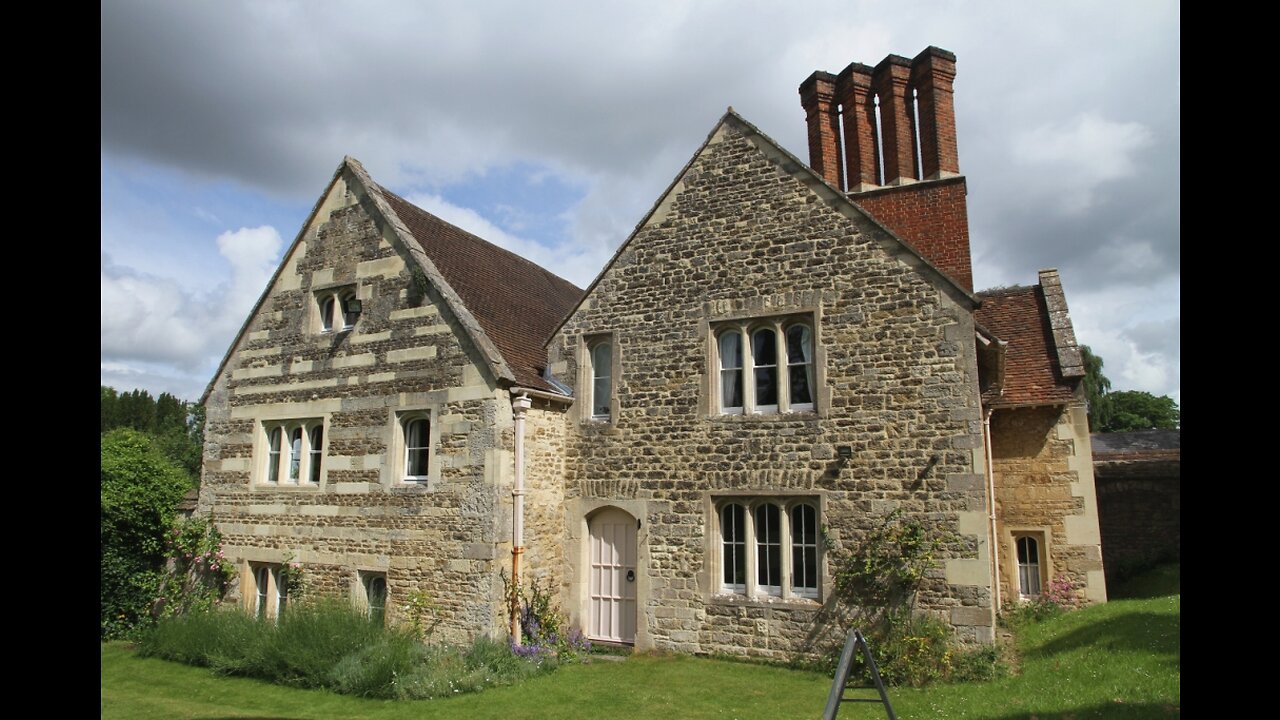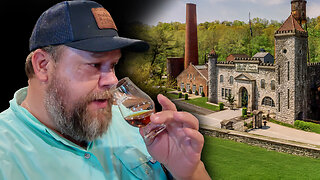Premium Only Content

"Paul Clifford", Chapter 11, by Edward Bulwer-Lytton
I boast no song in magic wonders rife;
But yet, O Nature! is there nought to prize,
Familiar in thy bosom scenes of life?
And dwells in daylight truth's salubrious skies
No form with which the soul may sympathize?
Young, innocent, on whose sweet forehead mild
The parted ringlet shone in simplest guise,
An inmate in the home of Albert smiled,
Or blessed his noonday walk,-she was his only child.
Gertrude of Wyoming.
----
Well it is no great mystery to the reader what is going on in this chapter. But it makes for a fun plot so long as the telling of the story is well done. And it has been well done thus far, so there's no reason to fear disappointment on that count.
This chapter had not only a fully blanked out name (which I complained about back in chapter 6), but also a fully blanked out date!! Why, for the love of God, do authors do this?! Anyways, I tinkered with the phrasing around that bit so as to not have a weird awkward blank in the middle of a sentence like that. Hopefully I did a smooth enough job of it that you don't even notice...
Joseph Brandon's parenthetical way of speaking sure is a bother, isn't it! Hard to follow along what he's trying to say... I assure you, it is just as much trouble reading it as it is listening to it, although with reading at least you have the luxury of going back and reviewing the sentence at leisure until you figure it out.
50 miles from London could get you roughly to such places as Cambridge, Chelmsford, Canterbury, Brighton, or Oxford, depending what direction you head out. Now what river you consider to be the fairest in England is subjective, but Oxford is on the Thames, Chelmsford on the River Chelmer, Canterbury is on the Great Stour, Cambridge on the River Cam, so any of these places could potentially serve as the setting for this chapter. We are told that one of the Brandons was a Jacobite, and Jacobites were typically associated with the Tories, and the Tories in the early 18th century had strongholds in places like Bristol, Oxford, Manchester, and Norwich. Of these, only Oxford is in the ballpark of 50 miles from London. We can't say conclusively that Oxford is the setting, but it is plausible.
Henry III was king in the 13th century. For most of the 13th century, in fact, from 1216 to 1272!
Pollard is a curious word. We have the context of "groves of pollards", so we know it must be a tree. In which case: a tree whose top and branches have been cut off to encourage new growth at the top. Doesn't tell us what type of trees, just how they are being managed. It's not likely to be any type of conifer (except maybe yew), you mostly don't pollard those. It's apparently common to do with willow trees, but can be done with other common species like beech, oak, and maple
Pausanias - there is a fellow of this name who was a Spartan king, and another who was a Greek geographer. I'm assuming the reference is to the later, who lived in the 2nd century BC.
Phigaleia was a city-state in southwest Greece, sometimes called Phialia.
spinet: a small harpsichord with the strings set obliquely to the keyboard, popular in the 18th century
agistment: the taking in by any one of other people's livestock to graze at a certain rate
Lord Mauleverer is of course fictional. Of interest, however, is that a character of that name was later used by Frank Richards as one of the main characters in the Lower Fourth Form, known as the Remove.
cock of the walk: the leader in a group, especially one with a conceited, domineering manner
expiable: capable of being atoned for; pardonable
glebe: a piece of land serving as part of a clergyman's benefice and providing income
The picture used is " The Rectory, Iffley, Oxford: view from the south, shopwing the original 13th-century south range (left) and 17th-century east wing (right)" by Motcailla, used here under the Creative Commons Attribution-ShareAlike 3.0 Unported license (https://creativecommons.org/licenses/by-sa/3.0/deed.en).
Much of this chapter takes place in the rector's house. This picture is of an actual rectory in Oxford.
To follow along: https://www.gutenberg.org/files/7735/7735-h/7735-h.htm#link2HCH0011
-
 2:05:07
2:05:07
Darkhorse Podcast
12 hours agoWhy Trump Wants Greenland: The 257th Evolutionary Lens with Bret Weinstein and Heather Heying
156K301 -
 LIVE
LIVE
Right Side Broadcasting Network
12 hours ago🎅 LIVE: Tracking Santa on Christmas Eve 2024 NORAD Santa Tracker 🎅
3,180 watching -
 2:48
2:48
Steven Crowder
15 hours agoCROWDER CLASSICS: What’s This? | Nightmare Before Kwanzaa (Nightmare Before Christmas Parody)
208K12 -
 33:49
33:49
Quite Frankly
12 hours agoThe Christmas Eve Midnight Telethon
6.85K1 -
 LIVE
LIVE
Price of Reason
11 hours agoAmber Heard BACKS Blake Lively Lawsuit Against Justin Baldoni! Is Disney CEO Bob Iger in TROUBLE?
278 watching -
 1:01:17
1:01:17
The StoneZONE with Roger Stone
6 hours agoChristmas Edition: Why the Panama Canal is Part of the America First Agenda | The StoneZONE
27.8K17 -
 LIVE
LIVE
LFA TV
16 hours agoLFA TV CHRISTMAS EVE REPLAY
518 watching -
 LIVE
LIVE
tacetmort3m
1 day ago🔴 LIVE - THE ZONE KEEPS PULLING ME BACK - STALKER 2 - PART 15
1,215 watching -
 22:45
22:45
Brewzle
13 hours agoI Went Drinking In A Real Bourbon Castle
21.9K3 -
 48:36
48:36
PMG
1 day ago $1.03 earned"Parkland Parent Speaks Out On Kamala Harris Using Victims"
15.7K3